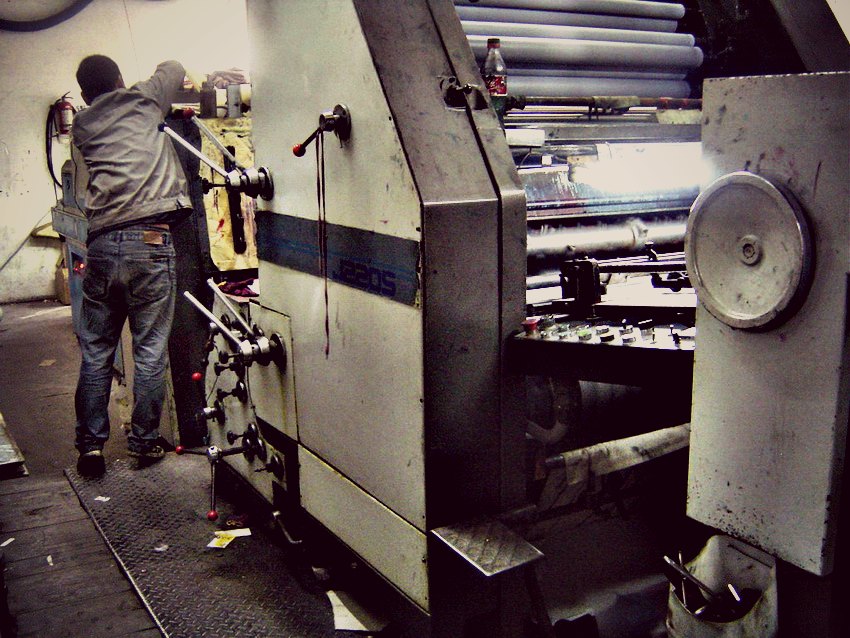Very little in China is viewed as a whole. Tasks and jobs are approached and handled as a series of disconnected steps.
Each step is an end to itself instead of viewed in context and handled in context as parts of a broader, over-arching situation and intended goal.
This post was inspired by one of the latest posts from the China Law Blog ran by Dan Harris.
Obviously with “law” being the main focus, there is also a wealth of info to glean from these articles on China business, life and thinking. I highly recommend this blog and anyone who has any dealings with China would benefit from Dan and his colleague’s writings.
Comprehensive, all-encompassing, complete, thorough, exact: in my 12 years of dealing with China (10 of which I lived there full-time) these were not terms and concepts found to practically play out in how things are done.
If these concepts do have a heartbeat and are part of a company, factory or system, it’s only after ardent, consistent and continual training.
Take the incident from Dan’s post. Part of the standard of the hotel restaurant is not assuring there is a clean dining room floor for the purpose of safety, cleanliness and appearance.
But their goal is more so in the immediate. “If customer almost falls, then clean the puddle”. Simple enough…
These mindsets greatly influences your China sourcing and ultimately how a factory is going to manufacture your goods.
In your China manufacturing endeavors, you may have found that a project starts off well only to end disastrously. There is no concept from your production partners’ side of taking the project all the way to the finish line.
Start strong, finish stronger.
“We won’t quit until we know we’ve brought this baby all the way home”.
You get the picture.
Tasks and projects are not complete systems to be managed from the start to the finish but everything is a series of disconnected steps to mark off of a to-do list.
Workers at the factory do what they do because the factory manager told them to. The sales person you deal with makes decisions, not based on your specs and then also the standards they uphold concerning client management and production quality goals, but based on what you told them to do and what their boss told them to do.
Points of motivation are not: quality, ownership, satisfaction, goals, growth.
Points of action are: “was told to”, company policy, cost savings, appearance of doing right.
Communication: How many times have you received an email from your vendor with an update and the vendor’s comments created 10 more questions in your mind?
The vendor did not consider that, “if they say this, then the client is going to ask this. And if they let the buyer know about xyz change, then the buyer is going to need an assurance on the delivery time.”
The thinking is not:
“Here is my normal method of client communication and my standard of assuring my buyers are clear on what’s happening with their orders. I should even consider aspects they haven’t asked about so we can avoid any undue confusion”
The thinking is:
“I didn’t know my buyer needed to know that. They didn’t ask me to inform them that piece of detail. Next time, they should ask. Why didn’t they ask?”
Again, you have a series of disconnected steps causing you to draw your own conclusion or either be content to not know what is actually going on.
Precision in communication is of the utmost importance when dealing with first time vendors or vendors you don’t do that much business with.
Production: Here is another example. You request a change of material on an order that is getting ready to go into production. The vendor confirms the change of material is possible. But they do not inform you that if you change the material, it’s going to extend the delivery time and weaken the overall quality of the item.
Not only do they not inform you this critical information but before they tell you the change of material is possible, they do not even check all contingencies to see what will happen IF THE MATERIAL IS CHANGED!
You think, “Why did the factory not inform us the change of material would cause the effects?”
Because they don’t follow things to their logical conclusions. They found out about it the same time you did!
The goal of this post wasn’t to mock China’s work method or to show how interesting cultural differences can be. I’m trying to show a better way to work and manage your projects.
Keeping all this in mind will allow you to work more efficiently with China and to proactively know how your supplier is thinking and how your supplier will react.
Any importer who works with China and doesn’t make provision for these kind of cultural reactions and ways of working is not a very savvy importer.
Last but not least, in the smaller towns and tighter-knit communities I believe you do see more professionalism and exactness and I’ve blogged on that here.






China Sourcing Basics
Let me share what I've learned about China Sourcing.
Provide your email & receive free ebook: 40 Tips for Emailing China Suppliers.
I'll never spam. I'll share tips on Private Labeling, Sourcing and China Business.
You have Successfully Subscribed!